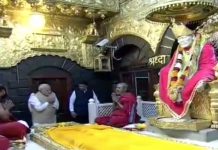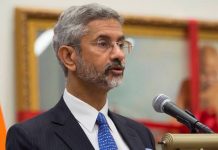
THERE ARE two versions of what SIMI is. One is SIMI’s own, the other is that of the rest of the world. For all purposes, the rest of the world has been led by the Indian government for the last seven years since SIMI was first banned on September 27, 2001. The government’s averments about SIMI are said to be based on supposed intelligence from its secret agencies and the police across India. There are, of course, scholarly Internet sites holding forth on the organisation. But it is clear on their first reading that their text is dictated by none other than the intelligence agencies.
Sadly, it may perhaps never be known for sure what SIMI’s character and activities before the ban was — or what it has been since, for that matter. The reason is that the two versions, SIMI’s and the government’s, stand at absolutely opposite ends of the spectrum. The government’s version is suspect for the obvious reason that it is propagandistic; besides, there isn’t any way to crosscheck it. The government had seven years to bring proof of its claims about SIMI, but it hasn’t yet done so and it appears doubtful it will bring some dramatic proof anytime soon.
As for the SIMI version, its truth or lie could perhaps have been nailed by investigating documents and other material in its dozen-odd offices across the country that were sealed at the time of the 2001 ban. But now, it is impossible to know if the insides of these offices have been maintained exactly as they were then. SIMI’s last president, Shahid Badr Falahi, thinks that opportunity is gone. “I passed by my former office after leaving jail four years ago,” Falahi told TEHELKA, referring to SIMI’s national headquarters in Delhi’s Muslim neighbourhood of Zakir Nagar. “I was dismayed to find it was missing doors and had turned into a den of gamblers.”
So the only way to sift the SIMI fictions from the facts is to juxtapose the two versions. This reporter leaves it to the reader to decide which version she finds credible.
The very first page of the background note issued with the Centre’s notification banning SIMI in February this year had this to say about the controversial outfit: “The stated objectives of the organisation (SIMI) are a) Governing of human life on the basis of Quran, b) Propagation of Islam, c) ‘Jehad’ for the cause of Islam, d) Destruction of Nationalism and establishment of Islamic Rule or Caliphate…”
The government says SIMI is a widely spread organisation with Muslims of all ages and persuasions as its members, who are underground and active across India. It says SIMI is linked with international terror groups; that it trains itself in arms, raises national and international funds from the Gulf and other Muslim countries, hatches conspiracies and carries out bomb blasts. Says the background note: “[SIMI] does not believe in the nation state, as well as in the Constitution, or the secular order; it regards idol worship as a sin and its holy duty to end it… SIMI aims to replace [Indian nationalism] with an International Islamic Order.”













